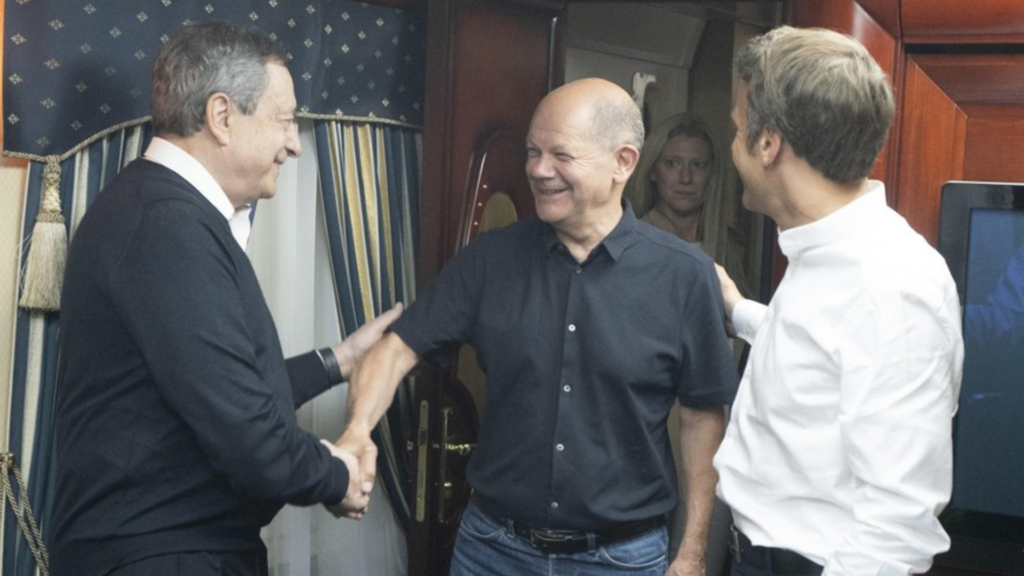German Chancellor Olaf Scholz, French President Emmanuel Macron and Italian Prime Minister Mario Draghi arrived in the Ukrainian capital Kyiv by train on Thursday morning.
The three heads of state plan to discuss with Ukrainian President Volodymyr Zelenskyy the continuation of their support for Ukraine and the country’s wish to join the European Union, following Russia’s ongoing invasion since 24 February.
The three leaders met in Rzeszow, a city in south-eastern Poland, at night, where they continued their journey to Kyiv by train.
‘Not a photo-op’
The visit comes at a crucial moment, as the war takes a particular toll in the east of Ukraine. While other Western leaders have travelled to Kyiv since the war started, the visit of the heads of the EU’s three biggest economies could potentially lead to significant political and military developments.
Both Scholz and Macron have said they would only travel to Kyiv if they have something important to discuss, and not merely as a photo-op, Politico reports.
Scholz pledged to help Ukraine for “as long as necessary” in an interview with the German daily Bild. The Chancellor said that the trio does “not simply want to show our solidarity” but also aims to ensure that organised aid will continue on all levels.
Ceasefire?
Despite promising predictions, Ukraine’s presidential adviser Oleksiy Arestovych told Bild he feared the leaders would come with demands for Ukraine to give in, rather than support.
“I’m afraid they will try to achieve a Minsk III ceasefire deal,” Arestovych said, referring to the 2015 Minsk II agreement which aimed to end the war in eastern Ukraine but failed to provide peace as the two countries interpreted the pact differently.
“They will say that we need to end the war that is causing food problems and economic problems… that Russians and Ukrainians are dying, that we need to save Putin’s face, that Russians have made mistakes, that we need to forgive them and give them a chance to return to the international community.”
Related News
- Europeans may split over the war in Ukraine, survey says
- Three Belgian soldiers sent back from Romania after 'internal tensions'
The visit comes at a crucial juncture for Ukraine’s bid for EU candidate status, as the European Council prepares to give its verdict at next week’s EU summit. But while Member States have been vocal in their support for Ukraine, this has previously fallen short of committing to recognising Ukraine as a candidate for EU membership.
“There’s no consensus for candidate status,” one diplomat told Politico on Wednesday. “But there seems to be consensus for a third way –candidate status with conditions.”
The European Commission is expected to formally recommend granting candidate status to Ukraine on Friday, but the final decision is up to the 27 EU countries at next week’s summit.

